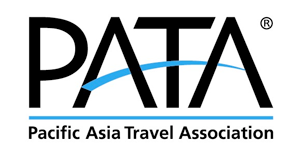More than two weeks after Malaysia recommended reopening its borders, the country's tourism industry awaits the government's decision to put an end to two years of economic uncertainty and misery.
Since the borders were closed in reaction to the outbreak of the coronavirus in March 2020, the business has been at a standstill for award-winning travel agency Apple Vacations Sdn Bhd.
Sales had collapsed by 99 percent, according to group managing director Koh Yock Heng, also known as Kohsan, with domestic tourism providing little relief for the outbound travel industry.
"Our immunization rates have improved," Kohsan told Al Jazeera, "but the authorities will have to carefully investigate the unexpected Omicron rise because it is crucial for us to be able to enter a new period of life where we can start opening up the market with safe management mechanisms in place."
Last week, Health Minister Khairy Jamaluddin told reporters that the crossings would most likely reopen in the second quarter of the year, with the ministry establishing standard operating procedures (SOP) for the relaxation of restrictions in the following weeks.
The comments came after a government advisory panel chaired by former Prime Minister Muhyiddin Yassin urged on February 8 that overseas tourists be allowed to enter the country without quarantine as early as March 1.
Despite the support of hoteliers and tour operators, the initiative was met with opposition from legislators and public health specialists concerned about the country's escalating Omicron wave.
The SOP will be given to the COVID-19 pandemic management committee, chaired by Prime Minister Ismail Sabri, and other relevant ministries, including the foreign ministry, before a final decision is taken.
Ming Luk Tan, the head of OYO Hotels and Homes' Malaysia and Singapore operations, said the industry has noticed that customers were prioritizing safety, preferring to stay in settings with sufficient ventilation and hygiene.
"While every country must balance the economic need to welcome international travelers, there is still room to tread carefully and gradually through the implementation of air bridges and travel bubbles rather than opening up the entire country at once," Ming told Al Jazeera, adding that his company's revenues had plummeted by 60% during the pandemic.
Ming questioned whether travel limits had a significant impact on public health at this stage of the pandemic.
"While the initiatives' negative economic effects can be measured using financial performance metrics, the societal advantage of reducing international travel has yet to be defined," he said.
Authorities should consider keeping quarantine measures to help manage the infection, according to Lim Chee Han, a public health expert, and researcher at the Agora Society Malaysia.
"After the Omicron-led pandemic wave has passed, the government can evaluate and update this decree," Lim told Al Jazeera, anticipating that the spike would pass by May.
"According to the most recent genome sequencing data, 90.7 percent of Omicron variant cases detected in Malaysia were imported," Lim stated.
Authorities have reported an average of around 26,000 cases each day in the last week, with infections climbing rapidly.
Despite high caseloads, some European countries, like Denmark and the United Kingdom, have abolished virtually all COVID-19 limitations in recent weeks. Only Malaysians, permanent residents, and a limited number of visa holders are currently permitted to enter the country, which is subject to stringent testing and quarantine laws.
Despite high caseloads, some European countries, like Denmark and the United Kingdom, have abolished virtually all COVID-19 limitations in recent weeks. Only Malaysians, permanent residents, and a limited number of visa holders are currently permitted to enter the country, which is subject to stringent testing and quarantine laws.
The Langkawi travel bubble in Malaysia has been an exception, with the Malaysia-Singapore Vaccinated Travel Lane resuming with immediate effect on February 16. Travel lanes with Thailand and Indonesia are being discussed.
According to the Department of Statistics, tourism is one of the driving engines of the Malaysian economy, with 26.1 million visitor arrivals in 2019 providing RM86.1 billion ($20.6 billion) in tourism earnings. Tourism employed 3.6 million people in 2019, accounting for 23.6 percent of the country's overall employment. In the same year, the sector accounted for 15.9% of the country's GDP.
In 2020, only 4.3 million tourists visited the Southeast Asian country, down 83.4 percent from the previous year.
While the industry waits for international guests to return, some major hotels and serviced apartments, such as The Ascott Limited, have shifted their focus to the domestic market.
Mondi Mecja, the group's country general manager, said the company has stayed afloat thanks to its long-term customer base and has seen a big increase in business since the Malaysian government abolished its interstate travel bans in October last year.
"I think a lot of people will still be hesitant to travel, particularly when it comes to flying," Mecja told Al Jazeera.
"We are still reliant on domestic travel, often known as 'Cuti-Cuti Malaysia' or 'Holiday in Malaysia,' this year, but with the launch of four new locations, we may expect a better recovery than previously forecasted."
- TAGS / KEYWORDS:
























.jpg)




.png)











